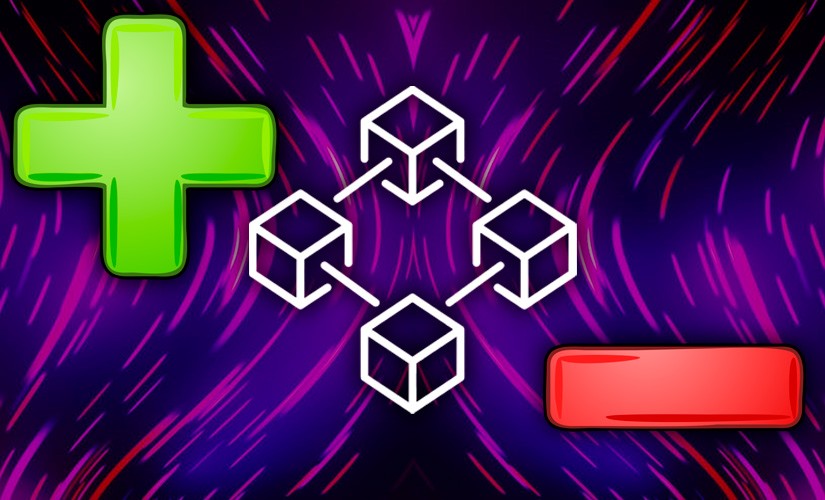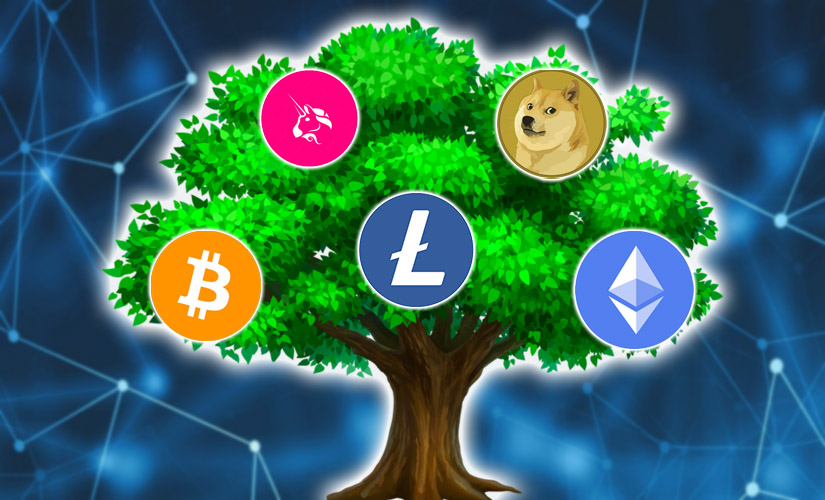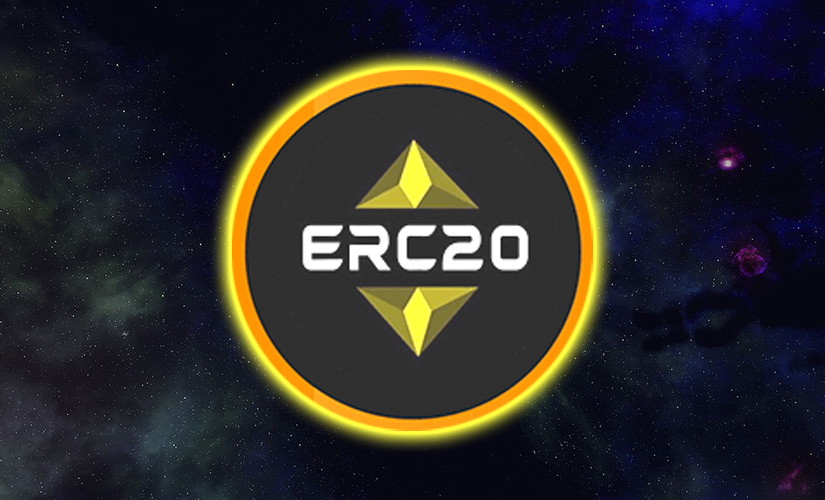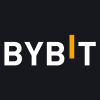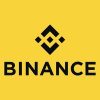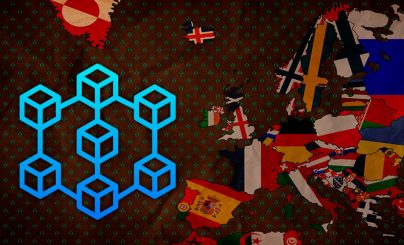
Satoshi Nakamoto created the first cryptocurrency, bitcoin. He used the work of other people. Vitalik Buterin created Ethereum. The development expands the use of digital technologies, allows the use of smartkontrakter, decentralized applications. Blockchain in public administration is a promising direction of distributed systems. It is a vast sector that includes administrative services, document management, voting and other functions.
Advantages of using blockchain technology
The sphere of administration for citizens and business has a number of disadvantages: bureaucratization, centralization of processes, high cost for the authorities. This situation has developed in different countries, only their level and degree of distrust differs.
Blockchain will solve these problems. Advantages of implementing distributed ledger technology:
- Trusted relationships between network participants without the intervention of a central authority.
- Control of processes by users regardless of level and status.
- Security of information, no risk of deletion or damage (intentional or accidental). Data is stored in a distributed network, so it is impossible to remove it.
- Speed of processing and issuing requests.
The table shows the advantages of blockchain over a centralized approach to performing functions in different categories.
| Task | Fordeler | Funksjoner |
|---|---|---|
| General | Transparency, elimination of manipulation and corruption | Open access to bases at all levels, manipulation by officials eliminated |
| Organizational | Control, increasing trust in the authorities | Data immutability will create trust, forecasting, control by society |
| Economic | Reduction of costs, unchangeable ownership right | Users can not fear for property, land, business, no one will rewrite the information. Reduced costs of processing, saving, providing access. |
| Information | Protection from external threats, integrity and preservation | Information cannot be overwritten or destroyed, it is in a distributed network between participants. Smart contracts eliminate the human factor, reduce the probability of error in transactions. |
The introduction of blockchain technology into management structures will increase the efficiency of their work. Two components are used in this process:
- Distributed storage.
- Smart contracts.
Distributed ledger is based on the principle of each node checking operations before implementation. Smart contracts work according to rules binding for all participants in the process, ensure that conditions are fulfilled automatically without external control.
5020 $
bonus for nye brukere!
ByBit gir praktiske og trygge forhold for handel med kryptovaluta, tilbyr lave provisjoner, høyt likviditetsnivå og moderne verktøy for markedsanalyse. Den støtter spot- og leveraged trading, og hjelper nybegynnere og profesjonelle tradere med et intuitivt grensesnitt og opplæringsprogrammer.
Tjen 100 $ i bonus
for nye brukere!
Den største kryptobørsen hvor du raskt og trygt kan starte reisen din i kryptovalutaverdenen. Plattformen tilbyr hundrevis av populære aktiva, lave provisjoner og avanserte verktøy for handel og investering. Enkel registrering, høy transaksjonshastighet og pålitelig beskyttelse av midler gjør Binance til et godt valg for tradere på alle nivåer!
Implementation of blockchain in the sphere of governance will allow:
- Increase the level of decentralization of processes.
- Ensure transparency of decisions, access of interested parties.
- Increase efficiency, reduce organizational costs.
Decentralization
The absence of a main governing body is the foundation of blockchain technology. Distributed bases rely on nodes, which ensures full decentralization. Verification and validation of transactions in such a network is handled by users (specially authorized).
A blockchain-based system ensures immutability of records. Changes can be made only after the agreement of the nodes authorized for such transactions. Governing bodies can also be validatorer. In this case, each of them will have a different level of access, which will reduce falsification.
The nodes of a decentralized governance network on the blockchain can be:
- Public organizations.
- Universities.
- Ordinary citizens.
This distribution of authority will provide an even greater degree of decentralization. Blockchain technology is a platform for conducting the election process. It solves the problem of possible vote fraud, user confidence in the results.
Åpenhet
Blockchain in state and municipal government can serve as a base for storing information with public access. It is difficult to fake or change it. Transactions will be available to users instantly.
In a traditional centralized system, data is stored on servers run by units within the governing body. The trust of citizens depends on the attitude towards government structures. Servers and databases are accessed by several people, which reduces the transparency of public data.
Blockchain can serve as a base for different types of data. In this case, the level of trust of citizens in the government does not affect the reliability. Examples of information that can be stored in a blockchain and be necessary for ordinary users include copies of laws, regulations, and public information.
It is possible to organize access for law enforcement officers to documentation that is subject to inspection as part of the fight against corruption, abuse of power in terms of procurement, other financial or property transactions. This will reduce the number of such crimes and facilitate the disclosure of atrocities.
Efficiency
The costs of organizing the work of municipal and state structures take up a large part of the budget of a country, region or city. Blockchain will reduce these costs. Authorities operate at the expense of taxpayers. Reducing costs will have a positive impact on the spending of budget funds, and there will be an opportunity to redistribute money to other areas: medicine, education, security.
Cost reduction is possible due to the automation of processes. Smart contracts will help to work with the document flow, to open access to it. In addition to the practical side, blockchain will ensure the trust of citizens, which will lead to an increase in the rating of leaders.
The efficiency of the state apparatus is related to the collection of established taxes and mandatory payments. Blockchain technology can ensure the fulfillment of pre-defined rules and conditions. Fee and tax rates can be entered into smart contracts depending on the category of payer, income or profit. This will again reduce the cost of maintaining fiscal services and organizing the process.
Impact of blockchain in public administration
The application of decentralized networks is possible in different sectors and structures. Among the directions are:
- Organization of document management.
- Changing the principles of information transfer in medicine.
- Registration of land plots, real estate.
- Control of goods in logistics.
- Voting.
- Organization of purchases, tenders and auctions.
- Control of education.
Changes in document flow
Blockchain in state and municipal government is inextricably linked to optimizing citizens’ access to information. Many countries have problems with documenting services. The processes are non-transparent, contributing to the emergence of intermediaries. This leads to an increase in the cost of citizens’ appeal to the state structure.
To open a business, it is necessary to collect a lot of documents. To accelerate this process, a person turns to third-party organizations. Intermediaries help to obtain documents from state or municipal structures for an additional fee. In this case, a lot of time is needed, because the supporter also addresses the service with a request.
Acceleration of the document processing procedure
Decentralized data exchange based on blockchain will simplify access to information. Citizens will be able to interact with municipal services, receive certificates, answers to requests.
Administrative service centers are already operating in different countries. They are connected to the bases, authorized to accept citizens’ applications for the issuance of information and supporting documents with details.
In parallel, the load on the state structure is relieved, data exchange is accelerated. At the same time, the requirements for computer equipment are increasing. It is necessary to modernize the technical park taking into account possible scaling.
Getting rid of bureaucracy
This technology ensures that society receives information from the state. It is a system of governance with the help of an established apparatus. The growth of bureaucracy is associated with centralization of power.
The introduction of blockchain technology will get rid of the overpowering bureaucracy. Decentralized access to information will speed up obtaining necessary certificates. It will make it impossible for officials to abuse power and illegally spend budget funds.
Tracking all transactions through banks
Blockchain in the banking sector will allow to make transactions:
- Faster.
- More reliable.
- More transparent.
For banks, blockchain means lower operating costs, higher profitability. Users will be able to control transactions.
Blockchain will also provide data protection. Public and private keys will hide financial information from third parties.
Electronic voting
The electoral process is associated with gerrymandering of participants. The implementation of blockchain will provide advantages over the traditional system, making fair elections possible. Having said that, blockchain in voting is technically challenging.
Validation of transactions in a distributed network is done by validators. The voting is monitored by observers from different parties, because of which it is necessary to make them authorized too. At the same time, the party that has more nodes in the network will be able to make changes to the information included in the blockchain.
This problem has been addressed:
- Massachusetts Institute of Technology.
- Center for Distributed Registry Technologies of St. Petersburg State University and others.
The research reports of these organizations contain lists of problems and solutions for the implementation of electronic voting based on blockchain technologies. The model of the expression of the will of voters using a distributed register may look like this:
- Formation of the list of participants in the electoral process.
- Issuance of a person’s vote – symbol.
- Identification of participants on the site.
- Transfer of the token to the account of one of the participants.
Electronic voting systems on blockchain are being tested in different countries. At the same time, elections with the full-fledged application of a distributed registry have never taken place. A number of problems need to be solved.
Auctions and tenders
Blockchain in public administration will help to fight fraudulent purchases for budget money. The technology will make it possible to control the allocation of funds, the conduct of auctions and tenders.
In Russia, it was proposed to use “coloring” of budget money to check transparency. In case of improper spending, automatic blocking is possible.
Ukrainian developers have created the e-Auction 3.0 project. This is a service of electronic auctions, which helps to conduct procurement and eliminates the participation of officials in decision-making. In the public domain are:
- Terms.
- Process.
- Results.
Government scoring
The concept of customer scoring is used in the banking sector. The user fills out a questionnaire where each item has a score. The computer calculates the results and determines the trust rating for granting loans.
A similar system is applied in China. Scoring in the PRC is called social credit or trust rating. Big Data analysis technologies, facial recognition, mass observations of the country’s inhabitants are applied. Four areas receive information:
- Government affairs.
- Business.
- Society.
- Courts.
Private companies are brought in to assist. Citizens with low ratings may receive restrictions or sanctions such as:
- When applying for civil service.
- When applying for social security benefits.
- Being banned from expensive schools for children.
Positive deeds, such as volunteering or donating, increase the social rating. A high score provides discounts on tickets, electricity and others.
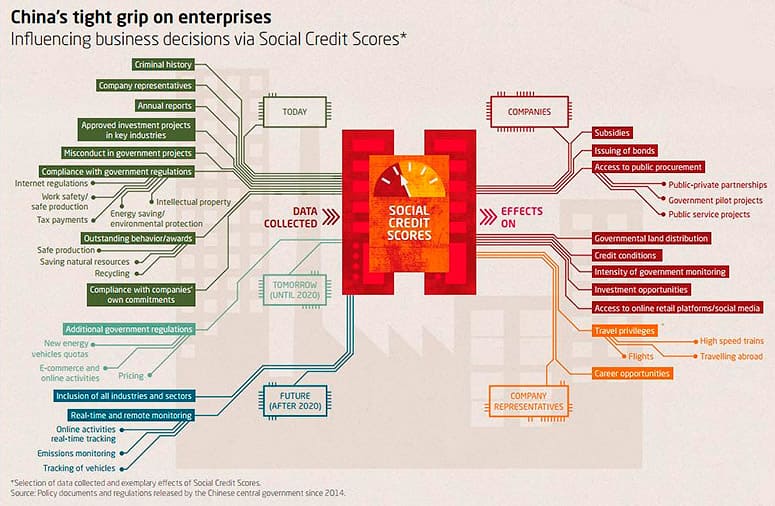
In Russia, the digital profile of a citizen is also considered. In this case, there is a problem of getting a person’s personal data to third parties with subsequent misuse. Smart contracts will provide security, provided the system is flexible.
Company registration
Blockchain in public administration will optimize business registration. Company registration is a complex procedure involving obtaining information from different structures. Often intermediaries are involved and take over part of the process. This makes registration more expensive and time-consuming.
Blockchain will automate this process, information exchange will become easier, and a unified storage system will provide access to data to interested parties. Transferring the company registration procedure to a distributed network is an element of the transition of the state and municipal sector to another level.
In addition to saving time, blockchain will reduce the budgetary costs of maintaining the bureaucratic apparatus, paperwork and reduce the corruption component.
Cadastral registration
Registration of land plots is another function of the government. The process differs from country to country, but has similar difficulties and problems in terms of transparency of the procedure. There is a corruption component.
Blockchain will make the procedure of registration of land plots and real estate objects quick and easy. Improvement of cadastral registration will avoid disputes between owners. Data will become open and available for viewing.
In the distributed register it is possible to record the rights to the plot, the process of movement of owners. The introduction of blockchain in cadastral registration is not of interest to corrupt officials who have organized “business” on this procedure.
The use of distributed base technology in land registration is important for developed and developing countries. The former optimize existing systems, the latter apply blockchain in the organization of the registry. Ghana, Sweden, Georgia, Honduras and others have advanced in this direction.
Health care operations
A distributed base in healthcare will ensure the reliability of information in a person’s medical history. Data cannot be changed or deleted, medical appointments, procedures and contraindications will be visible to every interested person regardless of the institution.
At the same time, electronic records and remote access to medical history, personal data of patients are already in use, including without the use of blockchain technologies. There are problems of information reliability and the possibility of its unauthorized change.
Some countries (Estonia, USA, Netherlands) are testing blockchain-based systems. Such networks also simplify interaction between patients and insurance companies.
There is a medical center in Moscow called Open Clinic. It transfers patient records to blockchain and realizes the integration of a data exchange system between participants in a partner network of clinics.
Work of educational institutions
Blockchain provides record keeping and access to graduation documents of educational institutions. Other advantages of implementing a distributed method of data storage in the educational process:
- Registration of diplomas, confirmation of pupils’ and students’ qualifications.
- Access of employers to the database, viewing the level of training of the applicant for a position.
- When obtaining other education it is easy to use information about passing courses, disciplines for re-crediting.
- Falsification of diplomas of graduation from universities and other educational institutions loses its meaning.
Fighting corruption
The problem of officials using their official position for personal enrichment exists in many countries. This also applies to the states formed after the collapse of the Soviet Union. The use of blockchain technology can help in the fight against corruption.
First of all, the distributed network will ensure transparency of information for citizens and government agencies. The monopoly of individual officials on access to necessary data will disappear.
In addition, the advantage of blockchain is the immutability of information. No one will be able to make unauthorized adjustments. The fight against corruption is possible in various spheres. For example, business registration, cadastral registration, obtaining permission to drive a vehicle, registration of residence, etc. The problem is the procurement system, fair tenders involving budget funds. Auctions based on blockchain technologies will ensure transparent spending of money and exclude the personal interest of officials.
Blockchain can also help make the process of donations transparent and verifiable.
Some countries are already testing the new technology. Georgia, the U.S., Estonia and other European countries are furthest along.
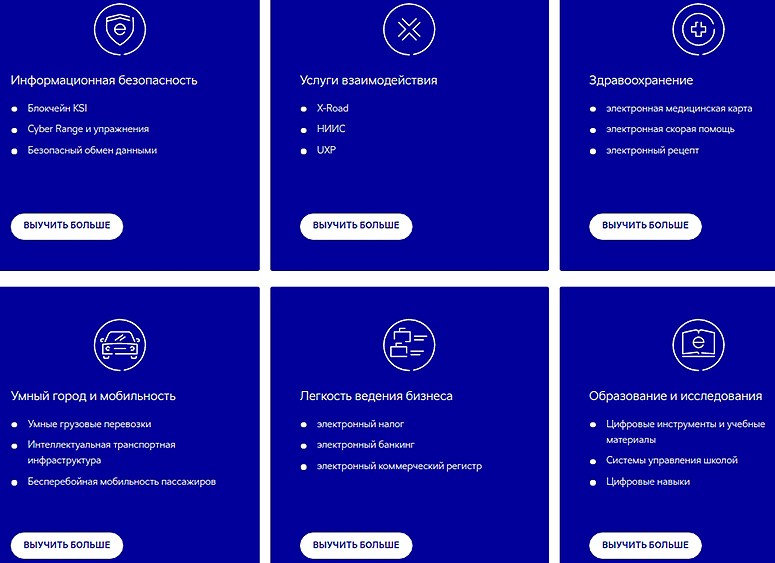
Disadvantages and limitations of blockchain in public administration
Blockchain in public administration has a number of disadvantages and limitations, with problems related to implementation in the administrative sector.
Among the disadvantages is the immutability of the information recorded in the distributed network. On the one hand, this is an advantage – no one can delete or rewrite the data. But in the case of a trivial mistake, it will not be possible to correct the situation, because the blockchain does not allow you to make changes.
It is necessary to think through the process of collecting primary data, entering it with precision and accuracy.
Theoretically, it is possible to organize the blockchain network in such a way as to modify previously entered information. However, this would require verification of the corrected data by the participants admitted to validation. This can lead to user disagreement, distrust in blockchain-based governance.
Confidentiality of some data is an issue. Blockchain provides participants with access to information. But this is not always necessary: there is personal or private information that is not desirable for outsiders to access. Especially if that information cannot be legally altered or rewritten. For example, information about a criminal record. It is allowed to remove this status as a result of full rehabilitation of a person (in some countries there is such a practice). It will be difficult to change criminal record information. Although it is possible to use token burning or other cryptographic proof methods.
The problem of blockchain implementation is related to incomplete realization of the network’s capabilities by officials, unwillingness to change the order. In countries where corruption is rampant, the use of distributed bases is “slowed down” at all levels. After all, blockchain is a threat to a bureaucracy built on the principle of illegal enrichment of officials and employees.
In addition, there are risks of implementing blockchain in the governance system. Measures to mitigate or prevent them should be considered during the development of technical specifications for programmers.
| Risikoer | Beskrivelse |
|---|---|
| Loss of access when private keys are lost | A problem arises, which can be solved by re-creating private keys based on identity identifiers |
| The use of technology does not exclude the use of intermediaries | Loss of information at the transmission stage, reduced access time, increased complexity. At the same time, intermediaries are necessary, for example, to resolve disputes, in case of disagreement of the user. These can be representatives of the supreme governing body, law enforcement structures. |
| Technological problems | The transition to distributed bases requires time and costs. Technical problems of translation are possible. |
| Incorporation of erroneous data | The human factor is not excluded, errors may occur when entering information or processing. As a result – loss of trust, additional costs. |
| Lack of examples in the form of a proven operational scheme in other states | The technology is new, untested, and it is impossible to use the experience of other structures. |
Practice of blockchain application in foreign countries
Among the countries, the United States is the furthest advanced in the implementation of distributed registry in government agencies. The following countries stand out:
- Great Britain.
- Canada.
- China.
- Singapore.
- Israel.
- Germany.
- Switzerland.
- Sweden.
- Japan.
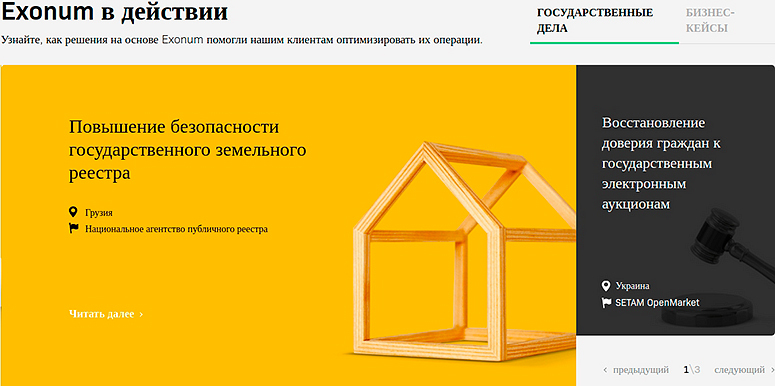
Also, blockchain adoption in public administration is taking place in the following countries:
- Estonia. The implementation of a decentralized open system includes different structures and bases. Residents of the country have electronic documents, which allows them to use the network, saving on their turnover. The system for e-Voting operates on the private capital market and is designed to manage shareholder companies.
- Netherlands. Developed a blockchain-based application for easier access to services for seriously ill patients.
- Sweden. Developed a solution for working with land plots and real estate objects. The service is used by buyers, sellers, owners, company agents and cadastral service.
- Georgia. Blockchain-based cadastral accounting has been developed. Since 2017, the project has been put into practice. The mining company BitFury participated in the development.
- Ghana. A blockchain-based cadastre is compiled. Tokens are used, which allow to solve issues with land plots (register, sell, buy).
Networks have been launched or are being tested in Singapore, USA, South Africa, South Korea.
Trends in the development of the technology in Russia
Blockchain in the Russian Federation is at the stage of implementation, projects are being developed with the support of federal and municipal structures. In June 2021, the government commission on digital development considered the strategy of digitalization of the Russian economy, and the following directions were defined:
- Healthcare.
- Education.
- Management.
- Social sphere and others.
The Moscow government held voting based on a distributed registry. In September 2021, elections to the authorities were held. For online voting, a blockchain-based platform was created on which citizens registered an account.
The Unified State Health Information System (USHIS) is also being created. This is a comprehensive network to support the medical structure and citizens – from state procurement to receiving assistance.
Sammendrag
Blockchain in public administration redistributes responsibility for public tasks. The transition of some functions from central structures to private organizations is possible. Society must be prepared for such privatization of power.
Therefore, the application of blockchain as a decentralized framework should be evaluated not only from the technological side. It is necessary to analyze the possible weakening of the regulatory functions of the state. The task of a distributed registry is to transfer responsibility to a large number of users. Centralized management consolidates power in the hands of officials, so the introduction of blockchain into government agencies should be done in a balanced manner, after analyzing pilot projects and taking into account the experience of other countries.
Ofte stilte spørsmål
🔑 How are systems for governance tested?
The main requirement is sustainability in conditions of mass access. Specialists test pilot versions, engage hackers to find vulnerabilities.
💡 Who is responsible for the development and creation of a blockchain-based solution in the public sector?
Specialized ministries and other structures are responsible for the development and creation of blockchain-based solutions in the public sector. Private companies are involved for practical implementation.
❓ Who controls the blockchain voting system?
The voting system is controlled by special nodes-validators, observers from political parties and users.
❗ Can an online voter vote multiple times from different devices?
Immediately after registration, the user is removed from the lists. It is not possible to vote again online or at the polling station.
🔎 Can the voter’s choice be tracked?
Online voting systems use anonymizer servers. They hide the voter’s data. The link to the voting ballots is given by a random number generator when mixing is used.
Er det en feil i teksten? Marker den med musen og trykk på Ctrl + Skriv inn
Forfatter: Saifedean Ammous, en ekspert på kryptovalutaøkonomi.


